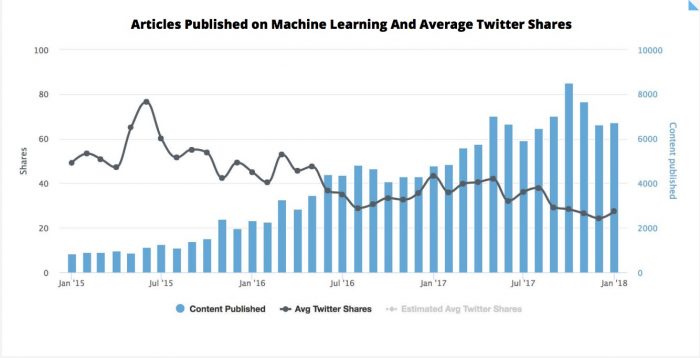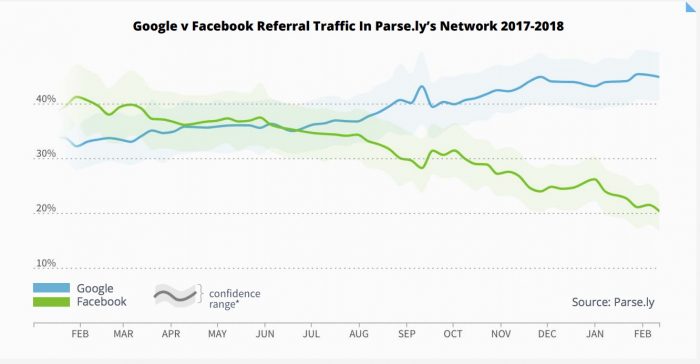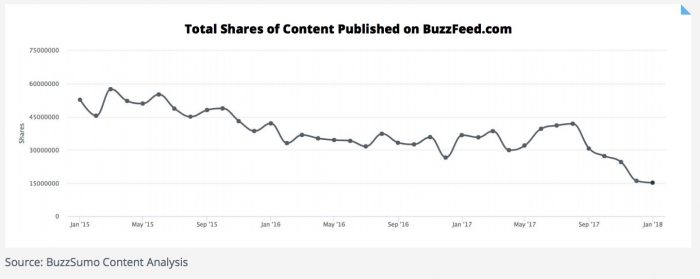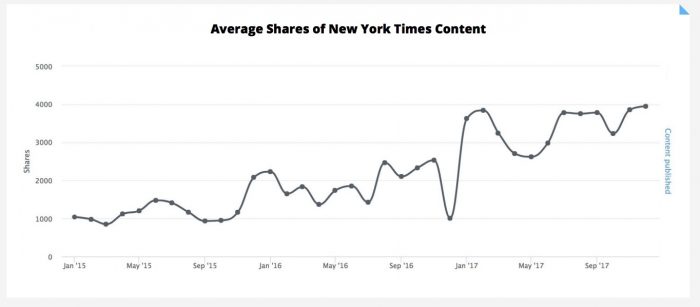Publishers may be getting dinged — and in some cases destroyed — by Facebook’s move to decrease the amount of publisher content in the News Feed, but the declines in social sharing have long been in motion.
This week, analytics company BuzzSumo released a new report analyzing trends in social sharing over the past few years. The top line takeaway from its analysis of 100 million articles is that social sharing is down by 50 percent across the board compared to just a few years ago. In 2015, articles saw an average of 8 shares; today that number has dropped to 4. Only 5 percent of content gets more than 343 shares.
Here are some other key findings from the report:
— Multiple factors are at hand here, according to BuzzSumo. One is that there’s just more competition among publisher content overall, particularly in popular topics like bitcoin, which causes a reduction in average shares as the number of published articles climbs. Private sharing via email and Slack is also on the rise, reducing public sharing further. And then there’s Facebook, which has repeatedly tweaked its algorithm to reduce the spread of viral stories.

— Search’s share of referral traffic continues to climb. Google sites are now driving twice as many referral to publishers as social media, as previous data from Parsely and Shareholic has shown. Time is a flat circle, etc.

— Some sites and content have been hurt more than others by these changes. Viral publishers like Playbuzz, Upworthy, and even BuzzFeed, for example, have seen regular and gradual declines in their total shares since 2015.

— It’s not all bad. While BuzzSumo’s trends portend a rough future for sites that traffic in clickbait and low quality content, there’s actually some good news here as well, at least for sites that that have built their brands around quality and authority: For sites like Harvard Business Review, The New York Times, and The Economist, the social picture has actually improved over the last year: Seven of HBR’s most-shared articles, for example, were published in 2017. It’s a similar situation for The Economist, which published its two most-shared articles last year.

BuzzSumo concludes:
It appears that increased content competition has not adversely affected these sites. Paradoxically it may have helped them reinforce their position in a world of content saturation. If you are going to share something with your audience you want to make sure it is well researched and authoritative from a trusted source, thus it is possible people are more selective in their sharing.
Leave a comment